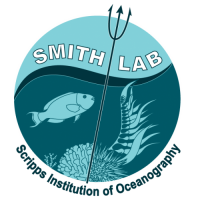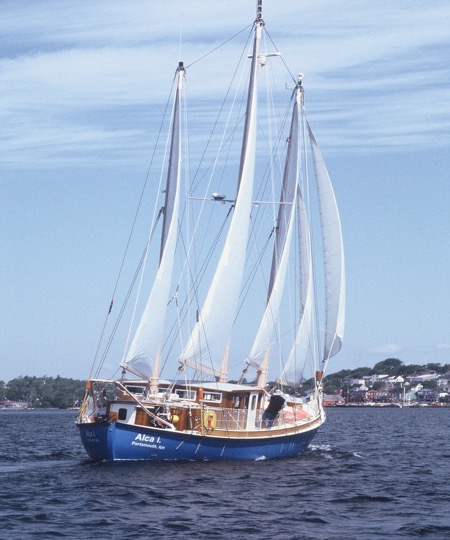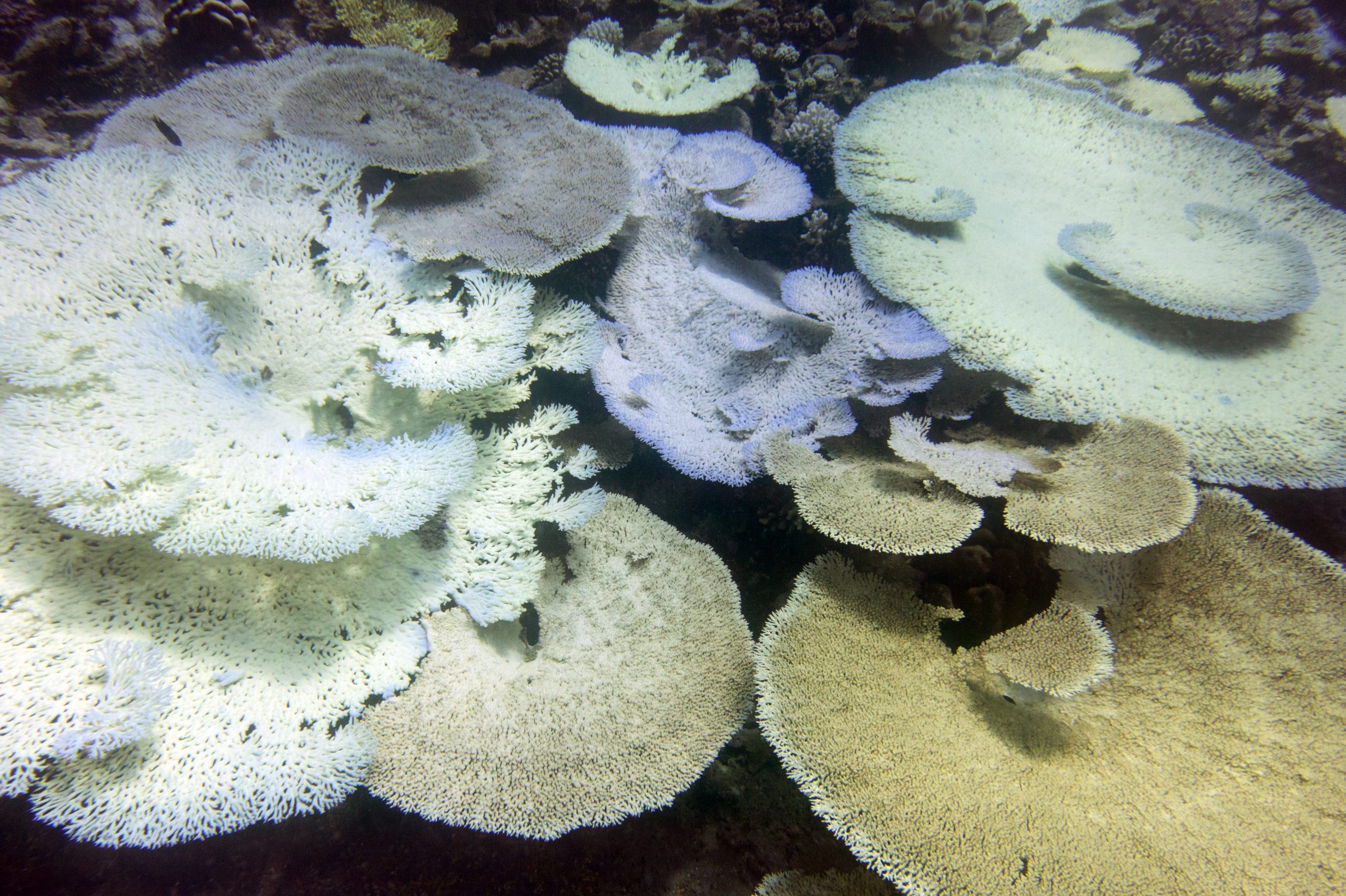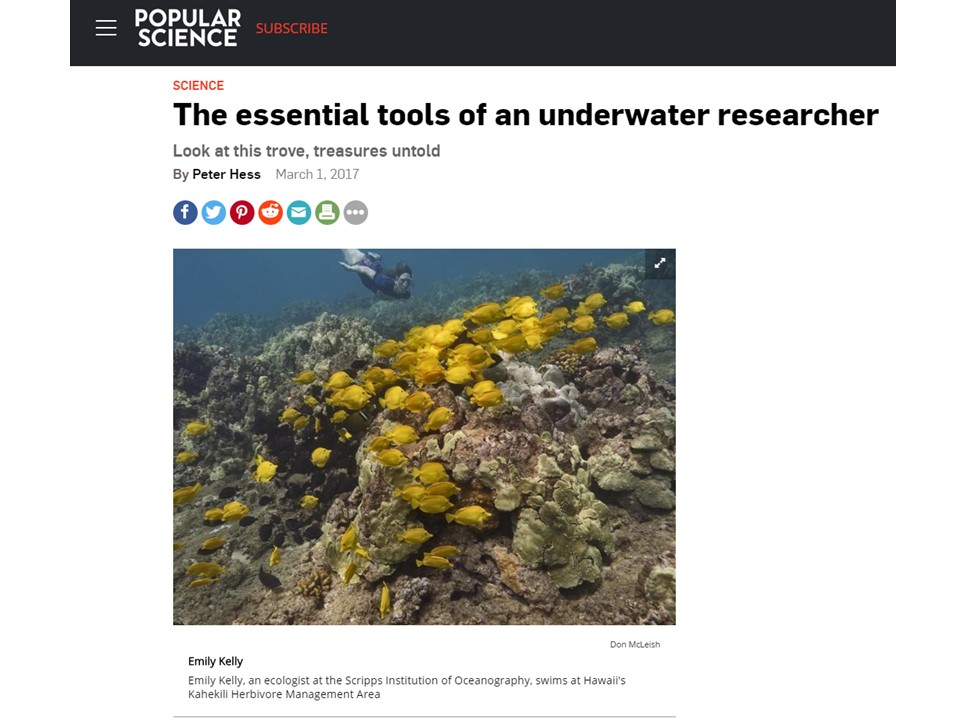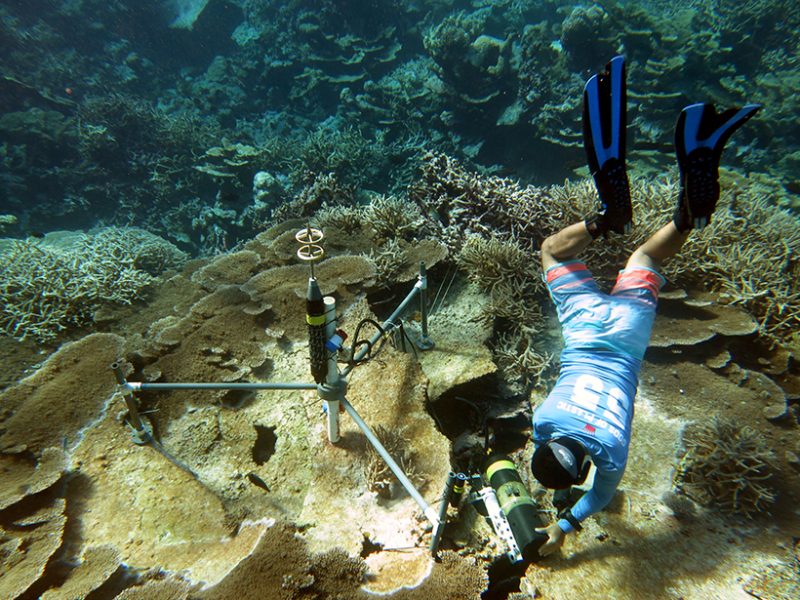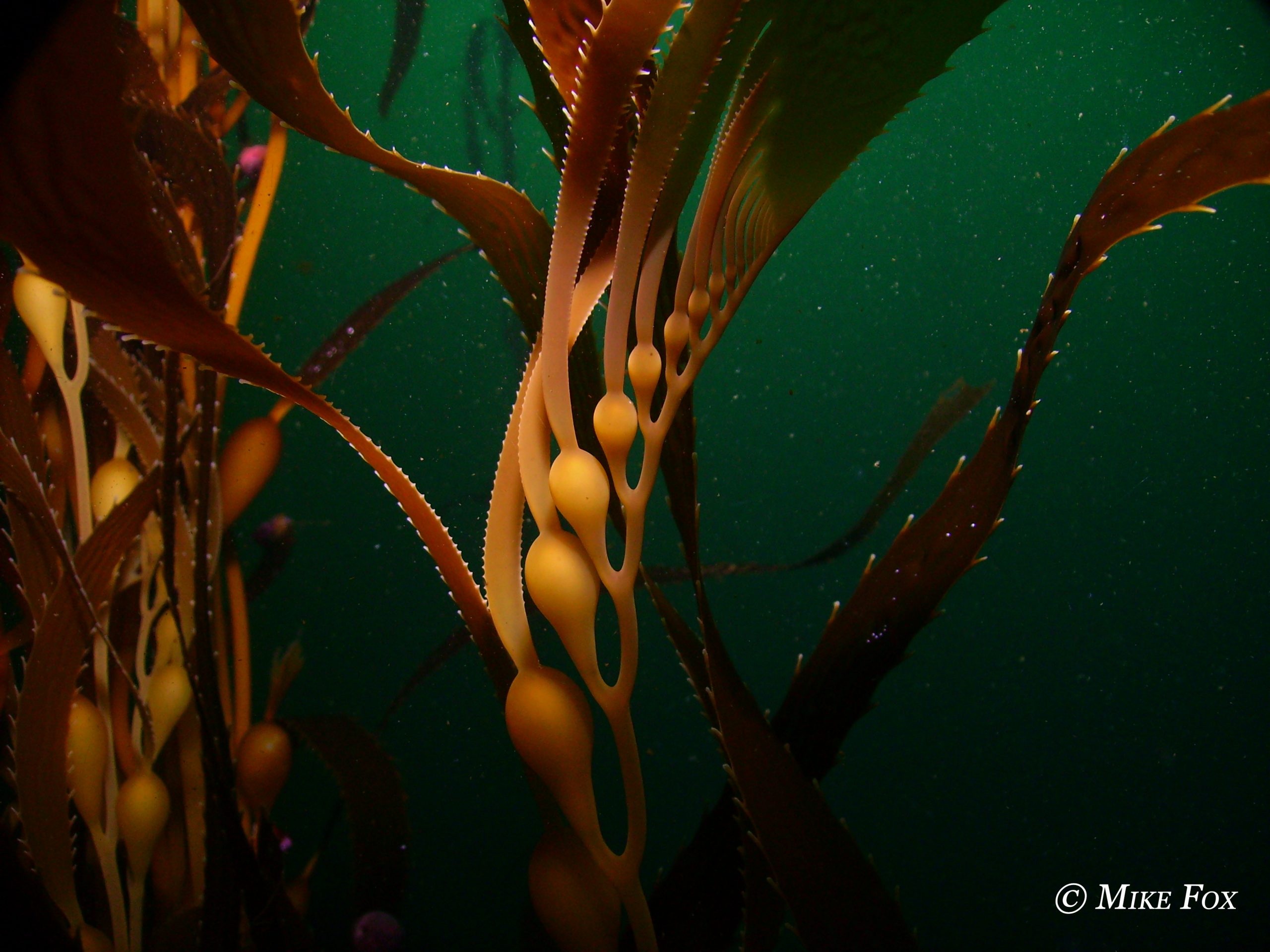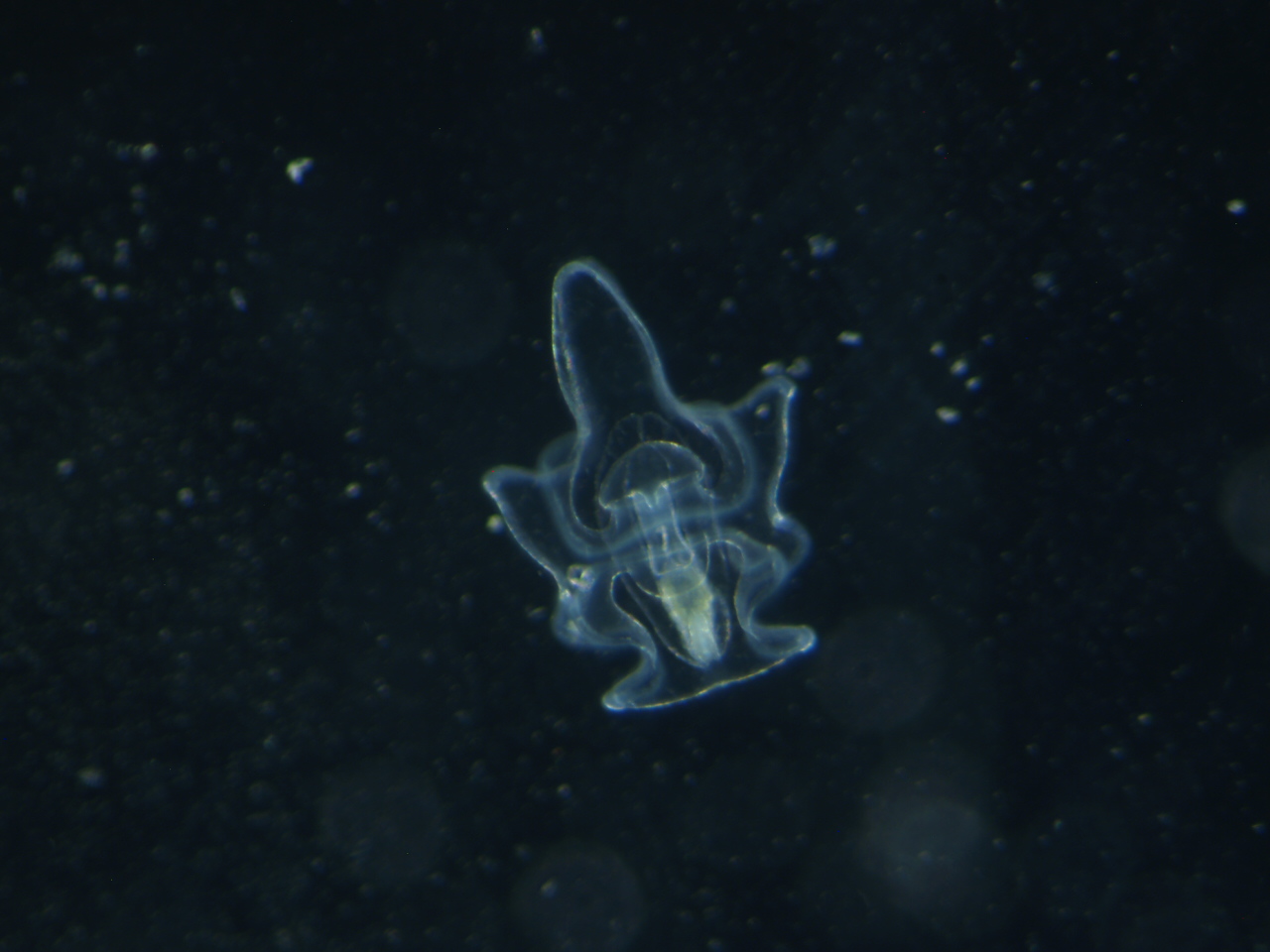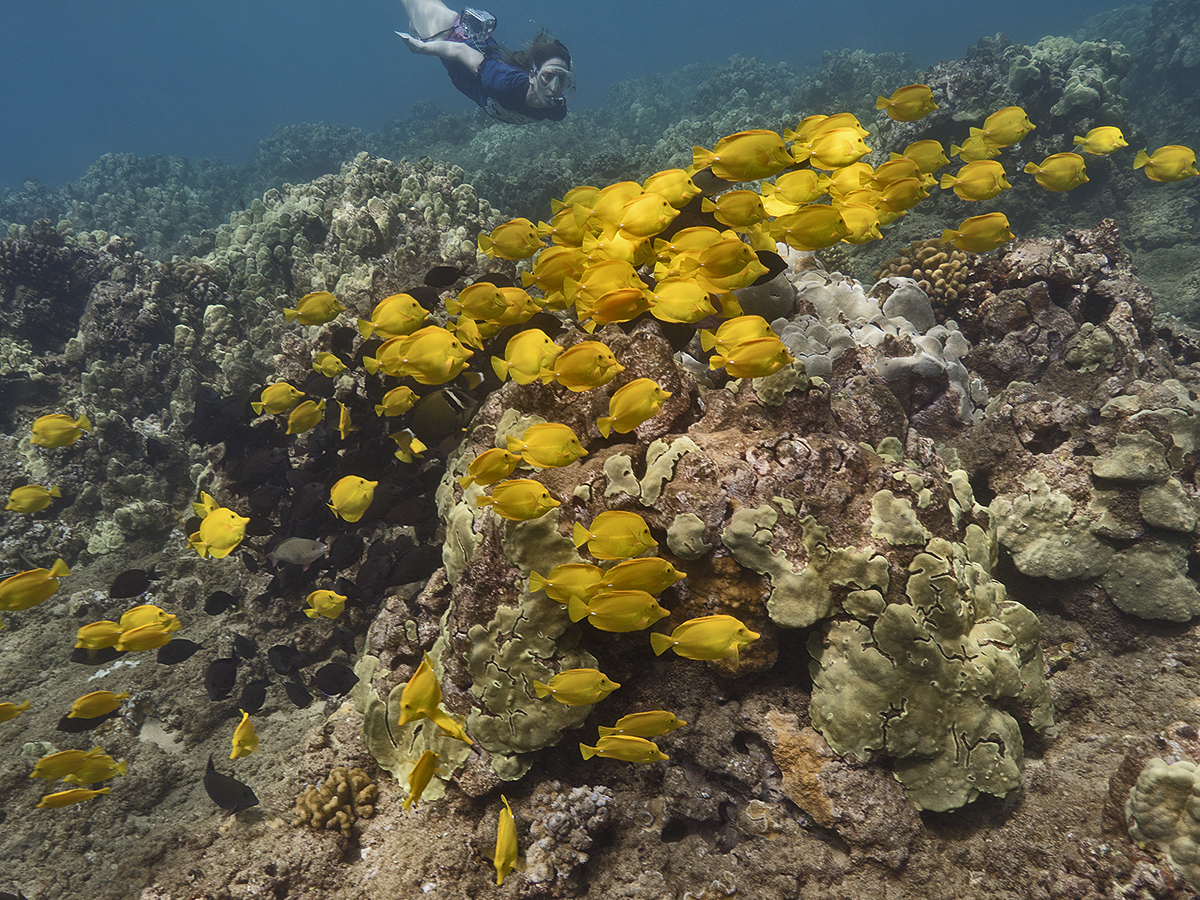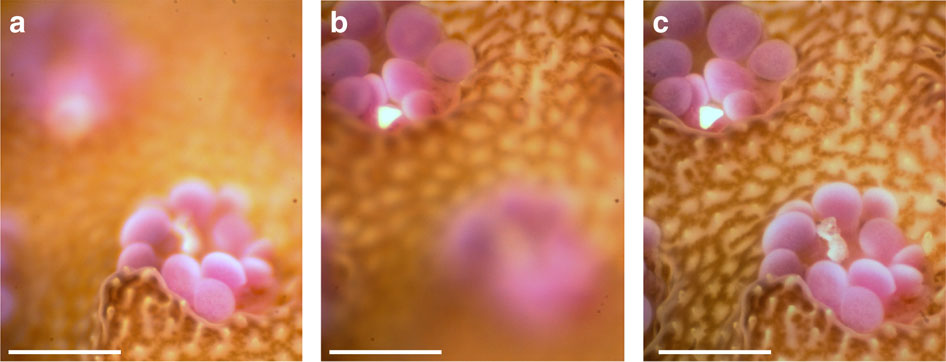Dr. Walter Adey has dedicated his career to studying the importance of seaweeds in the marine ecosystems of the Northwest Atlantic. Walter first surveyed the benthic communities of the Gulf of Maine fifty years ago. In the wake of the collapse of the famed New England cod fishery and half a century of climate change, the Gulf of Maine is … Read More
What are scientists saying about the fate of the Great Barrier Reef?
This week PBS interviewed scientists, including Dr. Jennifer Smith, about the effects of climate change on the health of the Great Barrier Reef. Click here to learn more about the science behind global warming and coral bleaching and what actions you can take daily to help preserve coral reefs!
Ever wondered about the coral reef ecologist’s tools of the trade?
Popular Science recently interviewed Dr. Emily Kelly about the essential tools of an underwater researcher, including waterproof paper, coolers, and even surgical equipment. Click here to read more!
American Geophysical Union (AGU) Eos article spotlights the Benthic Ecosystem and Acidification Measurements System (BEAMS) developed by a team of Scripps researchers
A paper published in 2016 by Scripps researchers, including some Smith Lab members, was recently featured in an American Geophysical Union (AGU) Eos article. The article spotlights the Benthic Ecosystem and Acidification Monitoring System (BEAMS) & its role in assessing reef health. Click here to see the full article!
A new study highlights the importance of surface biomass in the growth and recovery of giant kelp
Giant kelp is one of the largest and fastest growing organisms on the planet. Off the coast of California, this massive, golden-brown seaweed can reach heights of over 100 ft as it grows towards the well-lit surface waters. However, being this big can also have its disadvantages. Large waves can snap giant kelp fronds, removing biomass and sometimes even whole … Read More
Book chapter recently published explores the role of marine macrophytes in nearshore systems
Smith lab Ph.D. candidate, Mike Fox, contributed to a book chapter recently published by colleagues in Marine Macrophytes as Foundation Species that explores the role of marine macrophytes as a source of energy and habitat for nearshore systems. A description of the chapter is below: Foundation species disproportionately contribute energy and habitat to ecosystems and thus directly facilitate the … Read More
Smith lab and colleagues find that Crown of Thorns (COTS) larvae can take up organic matter derived from corals
Crown-of-Thorns Starfish Larvae can feed on Organic Matter Released from Corals Ryota Nakajima, Nobuyuki Nakatomi, Haruko Kurihara, Michael D. Fox, Jennifer E. Smith, and Ken Okaji Abstract: Previous studies have suggested that Crown-of-Thorns starfish (COTS) larvae may be able to survive in the absence of abundant phytoplankton resources suggesting that they may be able to utilize alternative food sources. Here, … Read More
Do different species of herbivorous fish have unique grazing roles on coral reefs, or are they all grazing alike?
Coral reefs are home to a large diversity of organisms. The herbivorous fishes, those fish that eat algae in competition with corals, are no exception to such diversity. But do the many species of herbivores have unique grazing roles on reefs or are all herbivorous fishes grazing alike? This was the focus of a study recently published in Oecologia … Read More
Smith lab and colleagues present an autonomous approach to measure coral reef net calcification and production rates
Assessment of net community production and calcification of a coral reef using a boundary layer approach Abstract: Coral reefs are threatened worldwide, and there is a need to develop new approaches to monitor reef health under natural conditions. Because simultaneous measurements of net community production (NCP) and net community calcification (NCC) are used as important indicators of reef health, tools are … Read More
New publication from Smith lab & colleagues: Meet the Benthic Underwater Microscope (BUM)
Underwater microscopy for in situ studies of benthic ecosystems Abstract: Microscopic-scale processes significantly influence benthic marine ecosystems such as coral reefs and kelp forests. Due to the ocean’s complex and dynamic nature, it is most informative to study these processes in the natural environment yet it is inherently difficult. Here we present a system capable of non-invasively imaging seafloor environments and organisms … Read More

